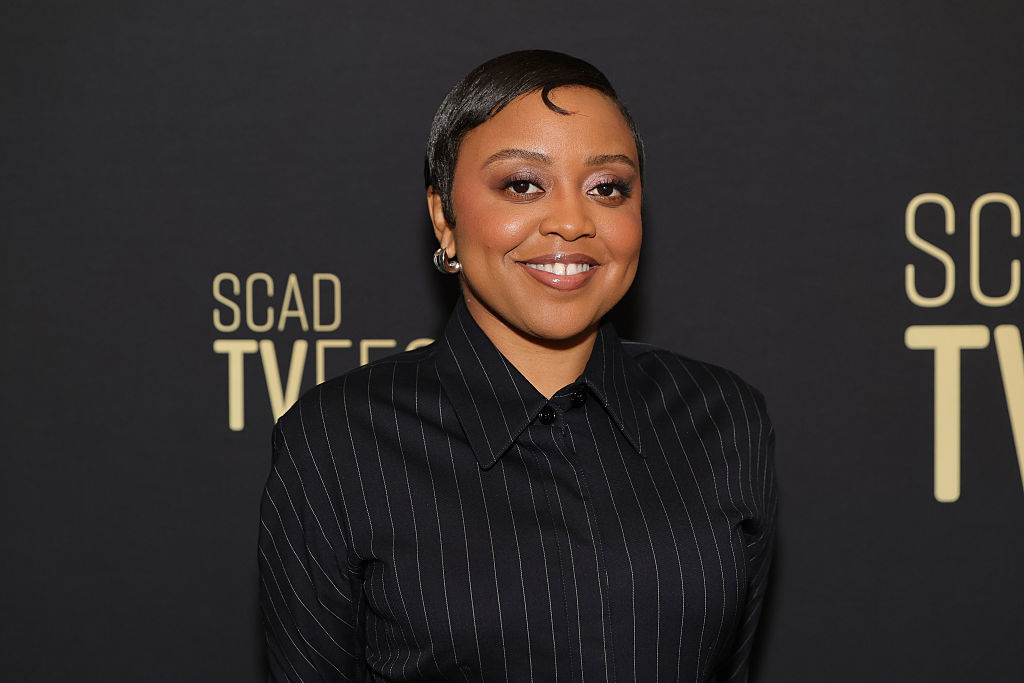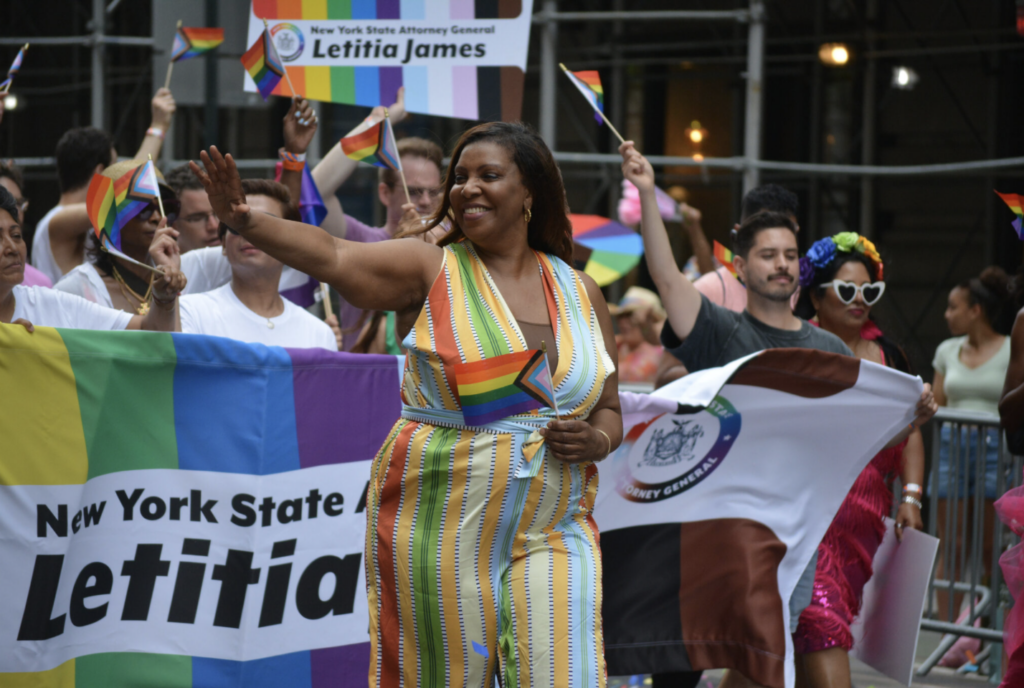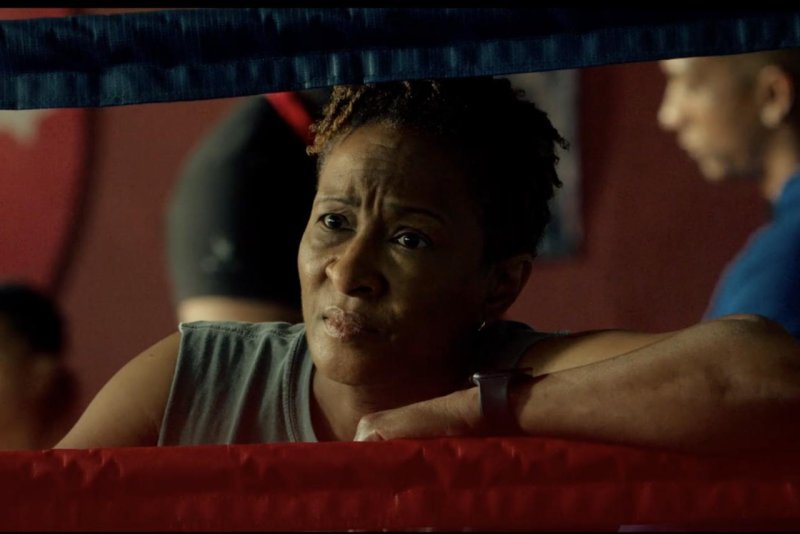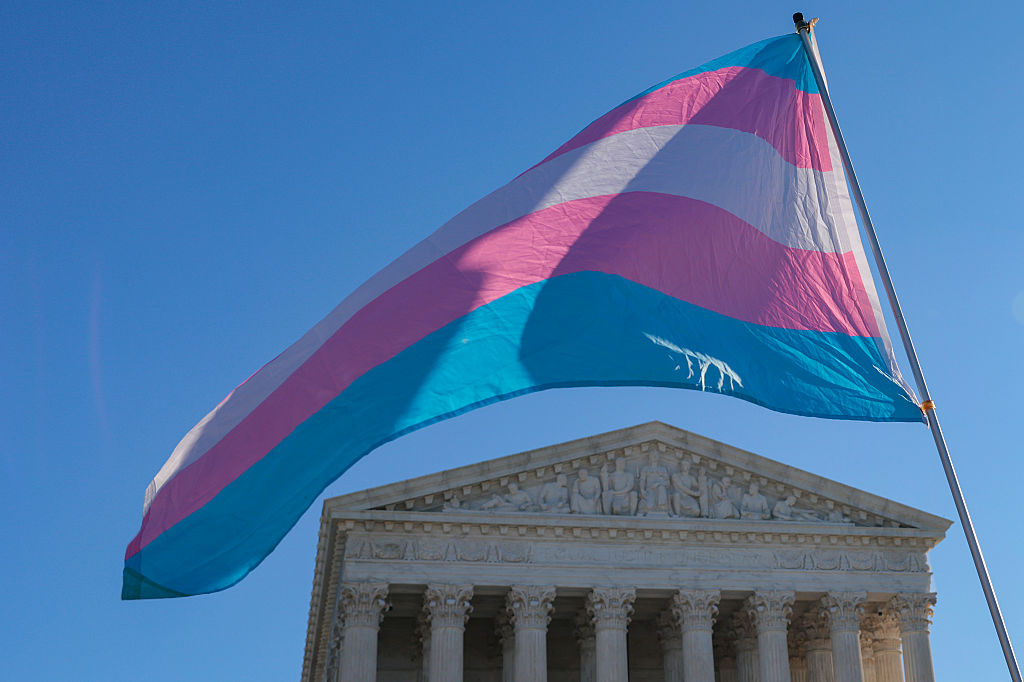State of Our Unions
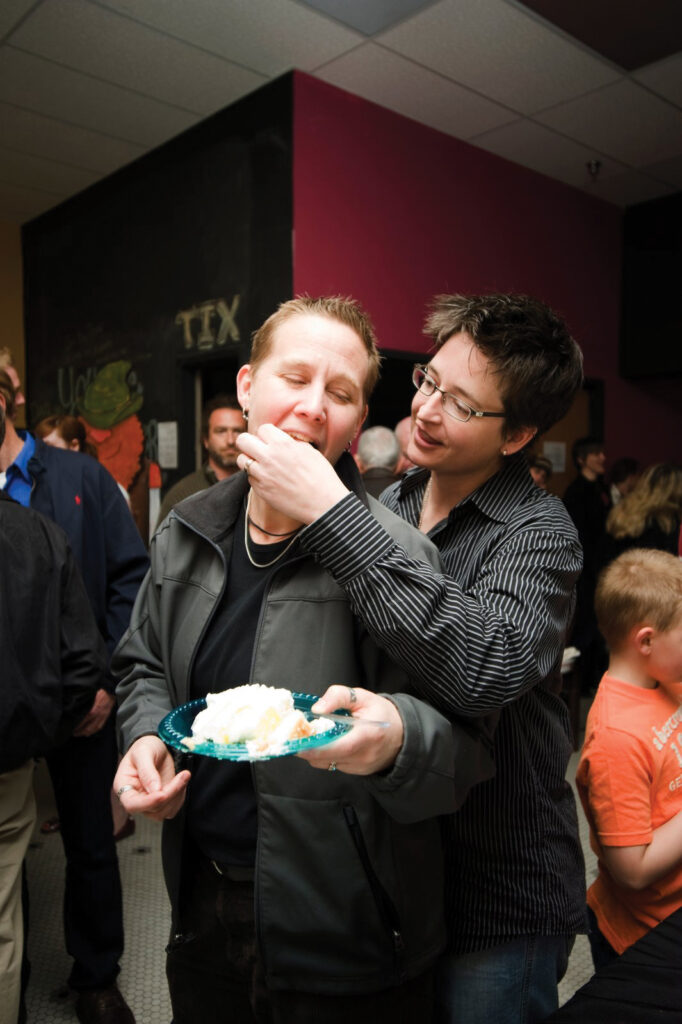
After a year as exalted by historic advancements as it was marred by setbacks in the fight for marriage equality, LGBT advocates around the nation continue to shout the same resounding message: It ain’t over ‘til the wedding bells ring.
The past calendar year has left the lesbian and gay community in a somewhat beleaguered state of schizophrenia. The euphoria that came with the successful election of the nation’s first ever African American president and self-proclaimed “fierce advocate” of LGBT rights has been tempered somewhat by Obama’s less than absolutely lock-step progressive policies and by what many see as his reticence to proactively fight the fight on gay issues. Obama’s tentativeness as an LGBT rights supporter/advocate, coupled with the defeat of many LGBT rights measures across the country – including and especially the unexpected and disheartening passage on Election Day 2008 of California’s Proposition 8, the anti-civil rights measure which rescinded the California Supreme Court’s May 2008 decision legalizing LGBT marriage – has made for a year of dramatic ups and downs for LGBT rights in general and for same-gender marriage advocates and wanna-be-married gays in specific.
In the wake of 2008’s mixed-results local and national elections and the national debates that followed, the marriage equality movement has gained historic and seemingly irreversible levels of attention and momentum on both the pro and the con sides. For better of worse, the national “family values” spotlight shined full blast on the issue of LGBT marriage in 2009, and it has remained focused there ever since.
The passage of Prop 8 – the first time in U.S. history that a democratic majority successfully voted to deprive a specific minority group of their basic civil rights – left the legality of marriages for 18,000 gay and lesbian couples in limbo and left LGBT advocates stunned and horrified. All across the country, LGBT people and their allies (including such notables as actresses Drew Barrymore and Cynthia Nixon) took to the streets in an impromptu national show of protest on election night as results streamed in from California. Since that night in November 2008 to and including the present, same-sex marriage supporters and their anti-LGBT marriage counterparts have been engaged in a ceaseless and intensely heated dialogue whose arena has included the nation’s streets, classrooms, media, and even its courtrooms. This noisy and emotionally packed dispute shows no sign of slowing down in the immediate future: as we go to press, both defense and prosecution have just rested in the challenge to Proposition 8 currently underway in the California Supreme Court in a case that is widely expected to reach the U.S. Supreme Court , which will presumably be the ultimate deciding body.
The aftershock of Proposition 8’s devastating passage served as a tipping point for many LGBT Americans and their allies. It mobilized and united a community exasperated by yet another slap in the face at the ballot box and the resultant perpetuation of unequal protection under the law. The marriage ban pushed LGBT issues to the forefront of the national conscience, influencing monumental decisions on relationship recognition in other states throughout 2009 and rendering the year a landmark one for our community.
The California Conundrum: Proposition 8, continued…
On November 5, 2008—the day after California voters passed Propositon 8—same-sex marriage supporters filed Strauss v. Horton, a case backed by California Attorney General Jerry Brown, challenging its legality. On May 26, 2009 the court upheld Proposition 8 in a 6-1 decision. Simultaneously, in a move that provided bittersweet relief for the 18,00+ LGBT couples legally “married” in California during the small window of time in which such unions were legal under state law, the court voted to preserve and recognize the legal status of the same-sex marriages which were performed in California just prior to the post-election enactment of Prop 8.
Shortly thereafter and in a venture that surprised many on both sides of the aisles, two gay couples represented jointly by nationally known attorneys Theodore Olson and David Boies filed Perry v. Schwarzenegger, a federal lawsuit challenging Proposition 8 on grounds that the initiative violated their constitutional rights to due process and equal treatment. The move surprised many for a few key reasons: first off, the LGBT advocacy community was (and is) hardly united on the wisdom of pursuing a federal versus a state by state approach to gaining marriage rights; secondly, and most significantly, the attorneys bringing the action are Theodore Olson and David Boies, two of the most prominent conservative and liberal legal activists in the country, respectively (they famously squared off on diametrically opposite sides of the Bush v. Gore case, which decided the 2000 presidential election). Though initially both activists on the left and on the right were deeply suspicious of the two men joining forces, Olson and Boies have since explained that, despite holding starkly different political views, as attorneys and as U.S. citizens they do agree on at least one thing: Proposition 8 is unconstitutional.
Presentation of evidence in Perry v. Schwarzenegger began on January 10, 2010, after lawyers for the anti-gay groups backing Prop. 8 waged an unsuccessful attempt to dismiss the suit, and concluded on January 28. Closing arguments have just been filed as of GO’s presstime, and both sides are anxiously anticipating an initial ruling in the case. Although Judge Vaughn R. Walker, the district court’s chief judge, who is hearing the case, was in favor of an albeit limited public broadcast of this landmark trial, California’s Supreme Court banned television cameras and audio feeds from the courtroom. Members of the alternate and mainstream media, LGBT organizations, anti-gay adversaries and the general public all have had to make do with following the trial via so-called “live blogs” posted by journalists and citizen reporters in the courtroom as well as from published transcripts of the proceedings.
Although various segments of the LGBT equality movement and legal analysts differ in their opinions on the appropriateness of the lawsuit’s timing or the probability of its success, both Olson and Boies remain confident that the court will recognize the soundness of their arguments. “The simple fact is that there is no good reason why we should deny marriage to same-sex partners. On the other hand, there are many reasons why we should formally recognize these relationships and embrace the rights of gays and lesbians to marry and become full and equal members of our society,” wrote Olson—a lifelong conservative—in a recent Newsweek cover story.
In a world full of uncertainties, one thing is for sure: Perry v. Schwarzegger will almost inevitably prove to be a pivotal case not just for same-sex marriage rights but also for the overall state of the LGBT rights movement. Whatever its outcome, it is widely believed that the ruling will be appealed and is bound to reach the U.S. Supreme Court, perhaps sooner rather than later. It is almost impossible to overstate the potential impact of this decision upon daily life for lesbians and gay men in America: it has the probability of setting federal precedent for same-gender marriage and, more broadly, for setting the bar for the overall state of LGBT rights in America.
Perry v. Schwarzenegger is hardly the only element of the Prop. 8 fallout that remains under deliberation. As if in parallel universes, some same-sex marriage advocates, regardless of the outcome of the federal Prop. 8 challenge, plan to bring the question of same-sex marriage before California voters yet again in an upcoming election. A group called Love Honor Cherish has launched an online campaign to gather the 1,000,000 signatures needed to qualify an anti-Prop. 8 initiative for the 2010 ballot. However, having learned from recent history, many LGBT leaders have expressed concern that 2010 may be too soon to revisit the issue at the polls; these advocates would rather focus on further shifting public opinion and favor putting off a renewed petition drive effort until 2012 or beyond. “Waiting indefinitely to return to the ballot is not an option, but we must be strategic in selecting the election that gives us the best opportunity to permanently secure the freedom to marry,” said Equality California’s Geoff Kors in a statement.
Northeast Nuptials (or Not)
New York
Marriage equality suffered some significant—though not insurmountable—setbacks in New York in 2009. Despite support from Governor David Paterson and New York City Mayor Michael Bloomberg and Democratic majorities in the state Assembly and Senate, a bill that would have allowed lesbian and gay couples to wed easily passed the New York State Assembly but died on the Senate floor on December 2, 2009, when the pro gay marriage legislation was ultimately rejected after an emotional debate.
The unexpectedly decisive 38-24 vote came as a painful blow to New York’s LGBT equality advocates, who spent nearly $1 million in legislative elections to secure support for the measure. Many felt misled by lawmakers who seemed to indicate they would back the bill and then changed their votes at the last minute. “I think that there were political forces that in some respects intimidated some of those who voted,” said Gov. Paterson following the Senate’s decision. “I think if there’d actually been a conscience vote we’d be celebrating marriage equality right now.” It appears unlikely that a marriage equality bill will surface in New York before 2011, when the state will usher in a new and, hopefully, more genuinely supportive Legislature.
The raincloud didn’t completely cover New York in 2009, however. The New York Court of Appeals ruled against the anti-gay Alliance Defense Fund in two cases challenging the state’s recognition of same-sex marriages performed in other jurisdictions.
New Jersey
In 2008 then-Democratic New Jersey Governor Jon Corzine announced his support of full marriage equality and pledged to sign a bill granting LGBT couples marriage rights if such a bill passed the state Legislature. New Jersey LGBT equality advocates hustled to put a marriage equality bill to a vote in a lame-duck legislative session at the close of 2009, hopeful that the bill could attract enough votes to enable the outgoing governor to make the measure law before then-Governor-elect Republican Chris Christie, a self-pronounced marriage equality opponent, was sworn in.
Frustratingly, in January 2010, after intense lobbying from both sides and hours of compelling debate on the Senate floor, N.J. lawmakers voted 20-14 against the marriage bill. Immediately following the Legislature’s decision, Garden State Equality Chair Steven Goldstein expressed his disappointment in the decision but called the legislative defeat “a juncture in an otherwise glorious road to justice” and announced that his organization would partner with New York LGBT advocacy group Lambda Legal in pursuing judicial action to secure full marriage equality.
Maine
Both houses of the Maine Legislature passed marriage equality legislation by decisive margins in 2009. Gov. John Baldacci signed the bill on May 6, but the state’s required 90-day waiting period for the enactment of laws allowed anti-gay activists sufficient time to collect enough signatures against the measure and put the question before voters. Thus was born Maine’s Question 1, which the media quickly compared to California’s Proposition 8 due to its similar reliance on a popular demographic majority to decide same-gender marriage rights, and because of the fierce campaigning and fundraising on both sides that the measure attracted.
Question 1 passed on November 3, 2009, overturning Maine’s marriage equality bill and ensuring no such similar measure until at least 2011, when a new state Legislature convenes.
Vermont
Vermont, which in 2000 became the first state to allow civil unions, took a leading role once more when large majorities in the state House and Senate passed marriage equality legislation. The bill was promptly vetoed by Governor Jim Douglas, on April 7, 2009, but Vermont lawmakers were able to override the veto and make the state the first in the nation to approve a marriage equality law through legislative action (to date, no same-sex marriage measure has ever been successfully secured through popular vote.) It was a rare victory amidst a sea of defeats: Ben & Jerry’s even temporarily chopped the “C” off of its “Chubby Hubby” ice cream to celebrate.
New Hampshire
After the New Hampshire House rejected a marriage equality bill in May 2009, members of the state Congress countered by adding language expanding exemptions for clergy and institutions which oppose same-sex marriage based on religious beliefs. The newly worded bill then passed New Hampshire’s House in a 198-176 vote, hours after the state Senate approved the legislation 14-10 along party lines. The bill went into effect on January 1, 2010. As it stands, New Hampshire’s marriage law additionally recognizes out-of-state nuptials and civil unions and provides for existing civil unions of N.H. same-sex couples to be legally converted to marriages as of January 1, 2011. On January 20, the N.H. House began hearings on two measures proposed by marriage equality opponents that seek to repeal the law and amend the state constitution to ban same-sex unions. The measures have not been voted on as of press time.
Washington, D.C.
The city council of Washington, D.C., voted in May 2009 to recognize same-sex marriages performed outside of the District, then on December 15 approved a measure that would extend marriage equality to gay and lesbian couples in D.C. Mayor Adrian M. Fenty has said he will sign the bill, which, like all new D.C. laws, is pending a period of congressional review. Nonetheless, few expect Congress to intervene, and the measure is widely expected to become law this spring. Additionally, a judge recently ruled in favor of the D.C. Board of Elections, which was sued by a group led by the vitriolic anti-equality activist Bishop Harry Jackson after the board refused to put the group’s anti-gay marriage initiative on the ballot because it violated the District’s Human Rights Act.
The Iowa Supreme Court’s Slam Dunk
On April 3 2009 the Iowa Supreme Court historically “reaffirmed that a statute inconsistent with the Iowa constitution must be declared void even though it may be supported by strong and deep-seated traditional beliefs and popular opinion.” With that unanimous opinion the court repealed Iowa’s same-sex marriage ban, upholding a 2007 district court’s ruling in Varnum v. Brien filed by Lambda Legal in 2005 on behalf of six gay and lesbian Iowa couples who were denied marriage licenses and making Iowa one of the most liberal states in the country on LGBT marriage issues.
Predictably enough, anti-gay activists have vowed to combat the Iowa Supreme Court’s decision, but overturning the ruling would require both houses of the state Legislature to pass a constitutional amendment in
two consecutive legislatures—which key Iowa lawmakers say is “exceedingly unlikely” in 2010.
Federal Developments
The Defense of Marriage Act (DOMA) barring the federal government from recognizing same-sex marriages even if individual states do continued in 2009 to prevent marked progress from occurring at the federal level. President Obama has stated his opposition to the discriminatory law, but came under fire after the Justice Department filed a brief in June defending DOMA (as it must with all standing federal laws) in Smelt v. United States. The brief sparked outrage because it included language apparently equating marriage equality with incest and pedophilia (the Justice Department later filed a follow-up brief with cleaned-up wording).
Following a federal DOMA challenge filed in March by Gay and Lesbian Advocates and Defenders (GLAD) on behalf of 15 married Massachusetts gay and lesbian couples, Mass. Attorney General Martha Coakley sued the federal government over DOMA on behalf of her state in July. The outcome of both cases is pending.
Civil Unions and Relationship Recognition
Two states made headlines in 2009 by enacting new laws or building on existing ones to offer gay and lesbian couples legal protections and responsibilities equivalent to marriage, minus the word itself. Washington state made headlines with the passage of Referendum 71, which preserved legislation signed by Governor Christine Gregoire that expanded the state’s existing domestic partnership law. The Nevada Senate and Assembly managed in May to override a veto of “everything but marriage” legislation by Governor Jim Gibbons; the state now offers an extensive domestic partnership system.
Wisconsin Governor Jim Doyle signed a state budget in June that included a provision allowing domestic partnerships with limited benefits. Similarly, in Colorado, Governor
Bill Ritter signed a measure allowing all unmarried couples to enter into a “designated beneficiary agreement” that provides some legal protections.
In November, Rhode Island Governor Donald Carcieri vetoed legislation that would have allowed “domestic partners” to make funeral arrangements for one another.
In late January, Hawaii legislature nixed a civil unions bill, which had passed the state’s Senate in a 18-7 vote.
Looking Ahead
Despite setbacks, LGBT equality advocates remain optimistic about the ultimate future of marriage equality. Some even contend that, despite painful losses, 2009 was nothing short of a banner year for the advancement of marriage rights.
“The arc of the LGBT movement’s 31-year history is marked by victories and setbacks,” the National Gay and Lesbian Task Force’s Dan Hawes told GO. “ Progress is never completely linear. It’s clear to us that as people continue to talk about why we need the right to marry, public sentiment is gradually tilting in our favor. The climate will continue to shift toward greater support.”
The Human Rights Campaign’s National Field Director Marty Rouse concurs, assuring GO that, “We’re slowly but surely winning marriage equality in our country.” Rouse predicts that elections at the state and federal level this year will strongly influence possibly pivotal gains in states such as Minnesota, Maryland, New York and Rhode Island in 2011, which he says has the potential of becoming “the most successful year for marriage equality to date.”
Despite the past year’s hurtful losses, a just-released HRC study reports that as many pro-LGBT bills passed in 2009 as in 2008 and 2007 combined. The HRC urge LGBT people across the nation to look to the future of same-gender marriage with optimism.







